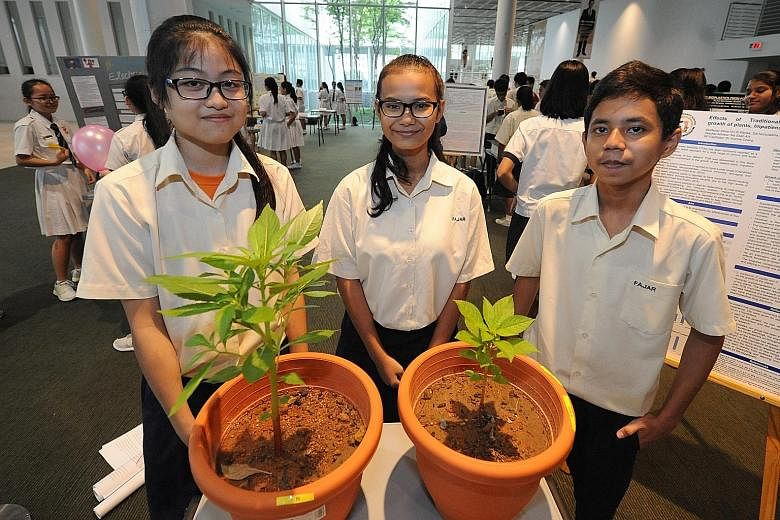One person fell ill and it got all of them thinking about mucus.
The group of students from Gan Eng Seng School decided to sniff out which of the following had mucus that was the most effective against bacteria - is it human, earthworm, frog, snail or fish?
After comparing the growth of E.coli bacteria on different types of mucus, they found out that frog mucus was the most resistant.
Chua Jia Jun, 14, a Secondary 2 student from the Gan Eng Seng School team, said: "One of our members had fallen ill, and that got us thinking - why do we produce mucus? Was it to fight bacteria?"
This was one of 43 student projects presented yesterday at the 13th Scientific Thinking Programme, an annual competition by Republic Polytechnic (RP) where secondary school students solve everyday problems with simple scientific solutions. The top five projects will go to the final round on June 24.
Another project looked at whether plants grew better if watered with traditional Chinese medicine infusions. A Fajar Secondary School team found that the answer is "yes".
"I've always wondered how the knowledge in our textbooks came to be," said Muhammad Imran, 15, a Secondary 3 student on the team.
"Now, I really appreciate the process of acquiring scientific knowledge, having gone through a bit of it myself," he added.
RP held workshops and assigned mentors to help the students with their projects.
Mr Ashley Chua, director of the School of Applied Science at RP, said: "We want to help youth understand how scientific possibilities and solutions can be found in every aspect of the world around them."

